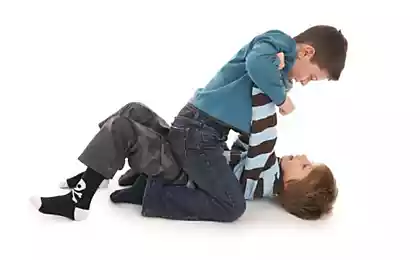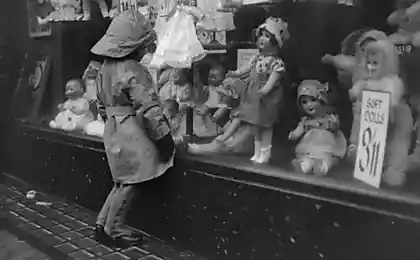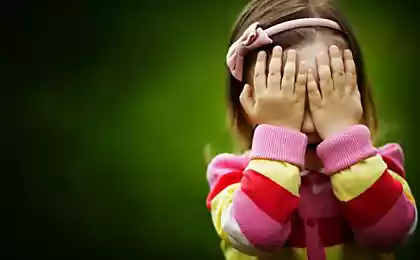539
What to do if a child is rude to others
The rudeness of the child (use of abusive language, disrespectful attitude) is an expression of verbal (that is, expressed in words) of aggression.
Aggression in a child occurs in response to the insecurity, dissatisfaction with circumstances is a form of asserting their interests.
However, looking at the rude child's behavior is not quite obvious what was happening to him, and parents often do not take the trouble to analyze his condition.
Depending on the environment in which a child grows, the expressions can be more or less "strong", but the essence is always the same – the child expresses his displeasure in a rude manner.
The grandson, seeing coming into his grandmother yells: "Get out of here!"
The girl, in response to a request from the nurse to turn off the TV, shouting: "Leave me alone, you stupid goat!"
The boy received a note from his father, said to him: "you Hesitated!"
Trying to deal with rudeness, we must remember that in addition to the ban on being rude to a child, you need to provide an acceptable alternative behavior in stressful situations, that is, to teach him how to replace the offensive language.
As for any other problem to the children's rude parents to come up with a "cool head".
If your child is constantly rude, do not try to solve the problem on the spot, hot on the heels of a particularly cleverly, tightly or suddenly in reaction to his regular attack. The problem is not solved at this point, and more complex and long way.
What triggers the child's rudeness:
1. The behavior of adults.
It close adult relatives (not Vasya, as many fear) the child is a preschooler you will take yourself as a sample. Of course, it can bring from kindergarten a few expletives, but in normal relationships at home, it is very easy to explain what these words you do not say.
If someone from the family of the child regularly swears, the child will necessarily do it again.
There are cases when the child is so intimidated by the parents, what about any rudeness in their address and can not think, but in this case it would be tough with those with whom it is safe (with familiar children, brothers and sisters, Pets)

Some parents, seeing himself in the child's behavior, clutching his head, dreading the "did I do that?" and seek to correct their behavior. In this case, the chances of success in overcoming a child's rudeness anymore.
The other part of the parents asks a different question: "how to make so that the child did not, did not repeat after me?". In such situations, the chances of success are minimal.
2. Children's negativism.
Negativity in psychology called the desire to resist the demands, do everything in defiance. In this case, the child, knowing that rude words are not allowed at home, can intentionally use them in a kind of "war" with adults, the purpose of which may be, for example, revenge or an adult defending the independence. The reasons for the negativism associated with a personal history of the child.
Negativism is characteristic of the transition period, the crisis of three years. If you observe this phenomenon beyond 3-4 years of age, it is possible to assume the existence of problems in the relationship with the child.
3. Blurred boundaries, the inability of adults to set the rules and control the situation in the family.
In such cases, usually the child's psychological condition leaves much to be desired, however, it becomes a family tyrant, whom nobody can handle. Rude then only part of the problem, in other areas with baby too hard.
How to teach the child of politeness.
Three classic and typically inefficient solutions to the problem of rudeness include:
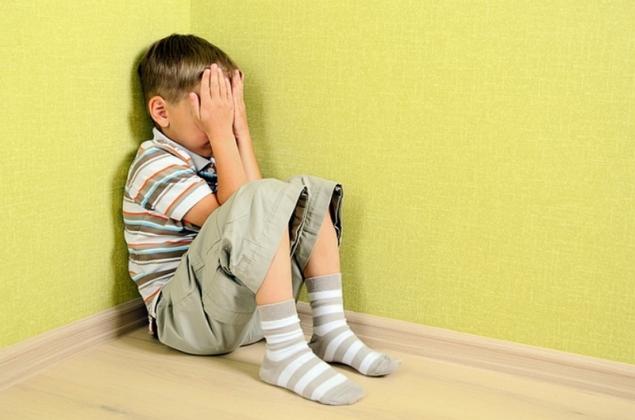
However, punishment can serve as a lightning rod for parents of their own feelings, allowing them to release tension. Parents use punishment, not in order to rectify the situation (experience tells them that the punishment will not help), but in order to compensate for their suffering from the disobedience of the child. They are driven rather vindictive motives ("just so you're with me, then I will hurt you").
If a child is rude regularly, you should not try to deal with rudeness, tightening punishment for his misdeeds.
Demands apology, remorse for being rude. Some parents try to solve the problem, demanding that the child publicly repented and apologized to the injured party. It is difficult to understand how it can wean the baby to be rude, but this technique is very popular. You can restrict the statement of the fact that it didn't work and the apology of the child, usually insincere.
Explanation. Explanation this is a very humane technique which is highly esteemed by educated parents. The only problem is that the explanations are effective when they reach the goal and something transformerait in the inner world of the child. And explanations for the explanations have no value.
Most parents using explanation, categorically incomprehensible to their children, their arguments are irrelevant to children, so do not work. Repeat the same explanation of the parents makes the illusion that the child understands them. As a rule, the illusion rests on the fact that the child repeats the words adult and nods in response to the question "do you understand now?".
We can hope for explanations if you have to tell your child something new (and not what you have already repeated to no avail for the last six months). In addition, you must be sure that all words and concepts are thoroughly clear to the child, and the arguments meaningful to him and internally logical.
A special strategy for dealing with a rude child
There is no magic pills for rudeness, no clever point methods of struggle with this harmful habit.
The roughness will disappear, if parents are purposefully and consistently.
Strategy with which you'll learn will work if you apply it 2-3 weeks.
This strategy includes several directions in which we need to act at the same time!!
1. Control yourself. Don't tell the child what you do not want to hear from him. To deal with the rudeness of the child at the time, as the family talk rudely (in the address each other or third parties) is a Sisyphean task.
2. Encourage your polite statements of the child.
This is the most important part of the strategy!
There is no way that kid was rude to you constantly. Notice and Express approval out loud in those moments when a child behaves politely (polite requests, Express feelings or ideas). The first time is important especially frequently and accurately promote polite statements that the child had a more accurate idea of what his words and actions lead to attention and approval of parents.
3. Ignore the rudeness.
Completely ignore the rude remarks of the child. If harsh words provide guidance, in any case, do not follow them!
Examples of rude remarks specifying the address of an
"Go away!"
"Give me a sweater, quickly!"
"Don't touch, that's mine!"
Under any circumstances don't need to do what the child asks roughly!
Ignoring the rudeness is the complete absence of any reaction to it. You seem not to hear those elements in the child's speech.
The rest of the text child, even if he goes directly for the rude statement, you should perceive.
Typical errors in this paragraph include: the seeming disregard and neglect of the child.
When the alleged neglect of a parent says something like: "I'm not going to talk to you until you are polite", "speak politely," "that's a harsh word, I cannot understand." Any reaction to the rudeness of the child may not disregard. Ignoring is only a complete lack of reaction of the parent.
While ignoring the child's parent in response to rudeness for a long time does not pay to the child attention. It is important that your ignoring was sent only rude, but not on the child!
The correct use of tactics of ignoring the problem: Bob: "Go away, you bad!"The mother continued to wash the dishes, not responding.A minute later Vasya comes to mother and says, "Can I have an Apple, please?"The mother says, "Sure, fine, if you ask politely!"
4. Intentionally teach courtesy.
It is not enough just to stop the rude manifestations. You should give adequate attention to teach the child polite form of address.
Through games, cartoons and books, their own behavior explain to the kid an acceptable way of expressing discontent. The older the child, the more you can expect to dialogue with him in this regard. With children 5-7 years is quite possible to invent and play various situations related to the expression of discontent.
Invent and play with your child how to act if being rude is just about ready to come off.
Don't leave the child alone to reinvent the wheel: prohibiting rudeness as a form of self-expression, and teach him to Express his own state otherwise. Then it will be fun.
Roughly"don't you dare to touch me right now!!!"
Politely"I'm angry as a dragon, I want to be one!"
Roughly,"the Grandmother was a fool, understands nothing!"
Politely,"I'm offended, if grandma doesn't listen to me!"
Roughly"you eat your stupid soup!"
Politely"I'm upset right now and I can't!"
If the child is very angry and the situation does not, you can Express your anger in the drawings, tearing paper (great noisy crush of paper cups), sports and other activities that do not bring harm to others.
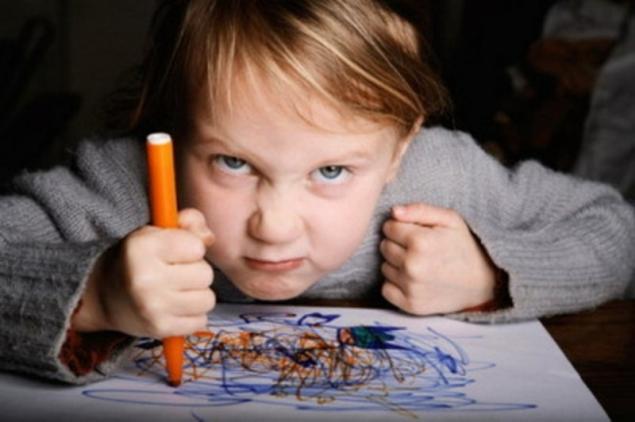
Will also help breathing exercises. Usually people breathe enough to support the functioning of the organism, but absolutely not enough to control their emotions, in particular to calm down. Tip: "Breathe deeply!" still relevant, including for children.
Tell your child that when he's angry, he can let in more air, then exhale it to help the anger go. For this you need only time to think about it and be alone for a few minutes.
5. Remember the episodes of rudeness.
With children from 3 years to discuss episodes in which they were rude. This must be done in a calm atmosphere, when a sharp conflict has passed. It makes sense to talk about what led to the outbreak of rudeness to come up and play 2-3 alternative behavior in a similar situation.
Overcoming difficulties in the relationship with the child, it is usually a long process, rarely associated with the only successful action of the parents. Therefore, from the strategy, you can expect results after a considerable time, although the improvements you can notice from the first day. published
Author: Elizabeth Filonenko
P. S. And remember, only by changing their consumption — together we change the world! ©
Source: mama-papa-help.ru/blog/vospitanie-rebenka/361-rebenok-grubit-okruzhayushchim.html
Aggression in a child occurs in response to the insecurity, dissatisfaction with circumstances is a form of asserting their interests.
However, looking at the rude child's behavior is not quite obvious what was happening to him, and parents often do not take the trouble to analyze his condition.
Depending on the environment in which a child grows, the expressions can be more or less "strong", but the essence is always the same – the child expresses his displeasure in a rude manner.
The grandson, seeing coming into his grandmother yells: "Get out of here!"
The girl, in response to a request from the nurse to turn off the TV, shouting: "Leave me alone, you stupid goat!"
The boy received a note from his father, said to him: "you Hesitated!"
Trying to deal with rudeness, we must remember that in addition to the ban on being rude to a child, you need to provide an acceptable alternative behavior in stressful situations, that is, to teach him how to replace the offensive language.
As for any other problem to the children's rude parents to come up with a "cool head".
If your child is constantly rude, do not try to solve the problem on the spot, hot on the heels of a particularly cleverly, tightly or suddenly in reaction to his regular attack. The problem is not solved at this point, and more complex and long way.
What triggers the child's rudeness:
1. The behavior of adults.
It close adult relatives (not Vasya, as many fear) the child is a preschooler you will take yourself as a sample. Of course, it can bring from kindergarten a few expletives, but in normal relationships at home, it is very easy to explain what these words you do not say.
If someone from the family of the child regularly swears, the child will necessarily do it again.
There are cases when the child is so intimidated by the parents, what about any rudeness in their address and can not think, but in this case it would be tough with those with whom it is safe (with familiar children, brothers and sisters, Pets)

Some parents, seeing himself in the child's behavior, clutching his head, dreading the "did I do that?" and seek to correct their behavior. In this case, the chances of success in overcoming a child's rudeness anymore.
The other part of the parents asks a different question: "how to make so that the child did not, did not repeat after me?". In such situations, the chances of success are minimal.
2. Children's negativism.
Negativity in psychology called the desire to resist the demands, do everything in defiance. In this case, the child, knowing that rude words are not allowed at home, can intentionally use them in a kind of "war" with adults, the purpose of which may be, for example, revenge or an adult defending the independence. The reasons for the negativism associated with a personal history of the child.
Negativism is characteristic of the transition period, the crisis of three years. If you observe this phenomenon beyond 3-4 years of age, it is possible to assume the existence of problems in the relationship with the child.
3. Blurred boundaries, the inability of adults to set the rules and control the situation in the family.
In such cases, usually the child's psychological condition leaves much to be desired, however, it becomes a family tyrant, whom nobody can handle. Rude then only part of the problem, in other areas with baby too hard.
How to teach the child of politeness.
Three classic and typically inefficient solutions to the problem of rudeness include:
- Punishment
- Demands an apology for being rude
- Explanation

However, punishment can serve as a lightning rod for parents of their own feelings, allowing them to release tension. Parents use punishment, not in order to rectify the situation (experience tells them that the punishment will not help), but in order to compensate for their suffering from the disobedience of the child. They are driven rather vindictive motives ("just so you're with me, then I will hurt you").
If a child is rude regularly, you should not try to deal with rudeness, tightening punishment for his misdeeds.
Demands apology, remorse for being rude. Some parents try to solve the problem, demanding that the child publicly repented and apologized to the injured party. It is difficult to understand how it can wean the baby to be rude, but this technique is very popular. You can restrict the statement of the fact that it didn't work and the apology of the child, usually insincere.
Explanation. Explanation this is a very humane technique which is highly esteemed by educated parents. The only problem is that the explanations are effective when they reach the goal and something transformerait in the inner world of the child. And explanations for the explanations have no value.
Most parents using explanation, categorically incomprehensible to their children, their arguments are irrelevant to children, so do not work. Repeat the same explanation of the parents makes the illusion that the child understands them. As a rule, the illusion rests on the fact that the child repeats the words adult and nods in response to the question "do you understand now?".
We can hope for explanations if you have to tell your child something new (and not what you have already repeated to no avail for the last six months). In addition, you must be sure that all words and concepts are thoroughly clear to the child, and the arguments meaningful to him and internally logical.
A special strategy for dealing with a rude child
There is no magic pills for rudeness, no clever point methods of struggle with this harmful habit.
The roughness will disappear, if parents are purposefully and consistently.
Strategy with which you'll learn will work if you apply it 2-3 weeks.
This strategy includes several directions in which we need to act at the same time!!
1. Control yourself. Don't tell the child what you do not want to hear from him. To deal with the rudeness of the child at the time, as the family talk rudely (in the address each other or third parties) is a Sisyphean task.
2. Encourage your polite statements of the child.
This is the most important part of the strategy!
There is no way that kid was rude to you constantly. Notice and Express approval out loud in those moments when a child behaves politely (polite requests, Express feelings or ideas). The first time is important especially frequently and accurately promote polite statements that the child had a more accurate idea of what his words and actions lead to attention and approval of parents.
3. Ignore the rudeness.
Completely ignore the rude remarks of the child. If harsh words provide guidance, in any case, do not follow them!
Examples of rude remarks specifying the address of an
"Go away!"
"Give me a sweater, quickly!"
"Don't touch, that's mine!"
Under any circumstances don't need to do what the child asks roughly!
Ignoring the rudeness is the complete absence of any reaction to it. You seem not to hear those elements in the child's speech.
The rest of the text child, even if he goes directly for the rude statement, you should perceive.
Typical errors in this paragraph include: the seeming disregard and neglect of the child.
When the alleged neglect of a parent says something like: "I'm not going to talk to you until you are polite", "speak politely," "that's a harsh word, I cannot understand." Any reaction to the rudeness of the child may not disregard. Ignoring is only a complete lack of reaction of the parent.
While ignoring the child's parent in response to rudeness for a long time does not pay to the child attention. It is important that your ignoring was sent only rude, but not on the child!
The correct use of tactics of ignoring the problem: Bob: "Go away, you bad!"The mother continued to wash the dishes, not responding.A minute later Vasya comes to mother and says, "Can I have an Apple, please?"The mother says, "Sure, fine, if you ask politely!"
4. Intentionally teach courtesy.
It is not enough just to stop the rude manifestations. You should give adequate attention to teach the child polite form of address.
Through games, cartoons and books, their own behavior explain to the kid an acceptable way of expressing discontent. The older the child, the more you can expect to dialogue with him in this regard. With children 5-7 years is quite possible to invent and play various situations related to the expression of discontent.
Invent and play with your child how to act if being rude is just about ready to come off.
Don't leave the child alone to reinvent the wheel: prohibiting rudeness as a form of self-expression, and teach him to Express his own state otherwise. Then it will be fun.
Roughly"don't you dare to touch me right now!!!"
Politely"I'm angry as a dragon, I want to be one!"
Roughly,"the Grandmother was a fool, understands nothing!"
Politely,"I'm offended, if grandma doesn't listen to me!"
Roughly"you eat your stupid soup!"
Politely"I'm upset right now and I can't!"
If the child is very angry and the situation does not, you can Express your anger in the drawings, tearing paper (great noisy crush of paper cups), sports and other activities that do not bring harm to others.

Will also help breathing exercises. Usually people breathe enough to support the functioning of the organism, but absolutely not enough to control their emotions, in particular to calm down. Tip: "Breathe deeply!" still relevant, including for children.
Tell your child that when he's angry, he can let in more air, then exhale it to help the anger go. For this you need only time to think about it and be alone for a few minutes.
5. Remember the episodes of rudeness.
With children from 3 years to discuss episodes in which they were rude. This must be done in a calm atmosphere, when a sharp conflict has passed. It makes sense to talk about what led to the outbreak of rudeness to come up and play 2-3 alternative behavior in a similar situation.
Overcoming difficulties in the relationship with the child, it is usually a long process, rarely associated with the only successful action of the parents. Therefore, from the strategy, you can expect results after a considerable time, although the improvements you can notice from the first day. published
Author: Elizabeth Filonenko
P. S. And remember, only by changing their consumption — together we change the world! ©
Source: mama-papa-help.ru/blog/vospitanie-rebenka/361-rebenok-grubit-okruzhayushchim.html

